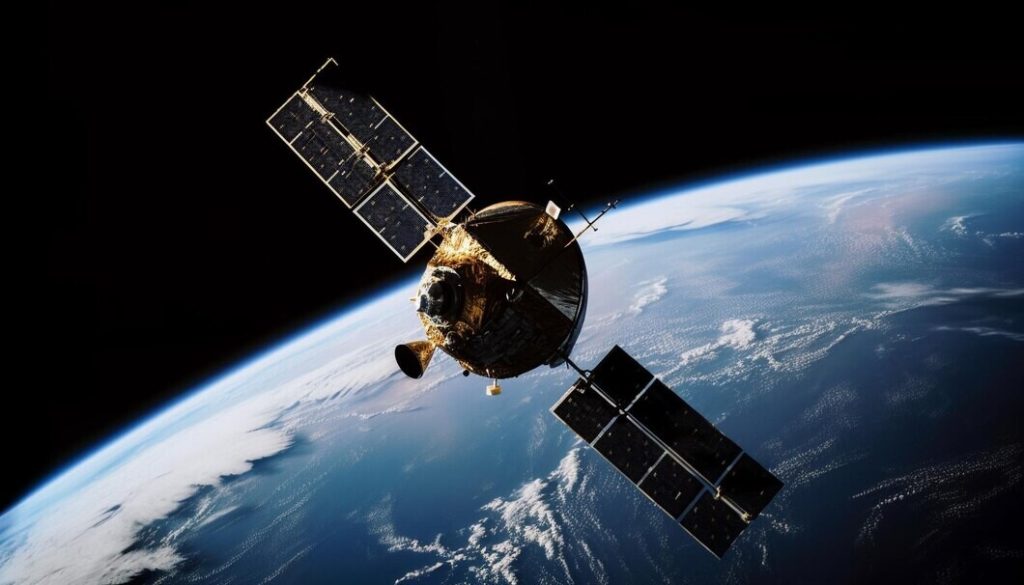Nigeria’s journey in space exploration has been a remarkable narrative marked by ambition, challenges, and incremental achievements. Emerging from the shadows of a British colony and gaining independence in 1960, Nigeria’s political landscape has been tumultuous, characterized by military regimes and shifts towards democracy.
The inception of Nigeria’s space ambitions can be traced back to the late 1990s under the leadership of President Olusegun Obasanjo, who established the National Space Research and Development Agency (NASRDA) in 1999. This marked the formal beginning of Nigeria’s quest to venture beyond our planet.
Milestones and Achievements
In 2003, Nigeria launched its first satellite, NigeriaSat-1, an Earth observation satellite, which became part of the international Disaster Monitoring Constellation (DMC). This milestone was followed by the successful launch of four more satellites, with three still operational as of 2020. Notably, NigeriaSat-X, launched in 2011, was the first satellite designed and built by African engineers, highlighting Nigeria’s growing technical capabilities and aspirations.

Strategic Goals
NASRDA’s ambitious vision, unveiled in 2005, aimed at achieving three main goals: manufacturing Nigerian satellites, training Nigerian astronauts, and developing a Nigerian launch vehicle. However, progress has been slower than anticipated. While Nigeria has successfully manufactured its satellite, the goals of sending an astronaut to space and creating a launch vehicle remain unfulfilled.
Beyond these stated objectives, Nigeria’s space program also aims to foster socioeconomic development through investments in STEM education and Earth observation technologies. These efforts are geared towards addressing pressing national issues such as climate change, agricultural planning, combating terrorism, and piracy.
Political and Social Challenges
Nigeria’s relatively young democracy faces significant political challenges, including pervasive corruption and public distrust in governmental institutions. Despite President Muhammadu Buhari’s efforts to combat corruption, accusations of political bias and inefficiency persist.
Transparency International ranked Nigeria 144 out of 180 countries in its Corruption Perception Index in 2018, highlighting the extent of the issue. To build public trust, Nigeria’s space program must demonstrate tangible benefits to its citizens and ensure transparency and accountability in its operations.
Technical and Economic Hurdles
Technically, Nigeria’s space ambitions are hindered by a lack of domestic launch capabilities, relying heavily on Chinese and Russian rockets. Collaborations with international partners like the U.K.-based Surrey Satellite Technology Limited (SSTL) and Chinese companies have facilitated capacity building for Nigerian engineers. However, developing a robust national technical base remains a critical challenge.
Economically, Nigeria’s dependence on oil revenues poses a significant vulnerability, exacerbated by global shifts towards renewable energy. Diversifying the economy through investments in infrastructure, agriculture, and innovation, including space technology, is essential. The Nigerian government’s allocation of $59.26 million for space activities in 2020, despite global economic challenges, reflects a commitment to this diversification strategy.
International Collaborations
Nigeria’s space program has benefited from international collaborations, particularly with China under the Belt and Road Initiative (BRI). China’s substantial investment in Nigerian satellite capabilities, including a $550 million equity stake in NigComSat, exemplifies this cooperation. Such partnerships are crucial for Nigeria to leverage foreign technology and expertise, accelerating its progress in space exploration.
Educational and Social Development
Addressing educational disparities and fostering interest in STEM fields are pivotal for Nigeria’s space aspirations. Government initiatives and organizations like the UN-sponsored Centre for Space Science and Technology Education and STEMres Nigeria are working to build a pipeline of skilled professionals. However, broader educational challenges, including gender disparities and low literacy rates, must be tackled to ensure a sustainable and inclusive growth trajectory.
More Articles on Sciencenaija: Internet Leaders: The Top 10 States with the Most Internet Users in Nigeria
Future Prospects
Looking ahead, Nigeria’s focus on utilizing space technologies for socioeconomic development, such as crop monitoring, climate change mitigation, and security enhancements, could yield substantial benefits. While achieving indigenous launch capabilities remains a long-term goal, leveraging international collaborations and focusing on Earth observation technologies may offer more immediate and impactful returns.

Bottom Line
Nigeria’s space program embodies a blend of high aspirations and significant challenges. Overcoming political, technical, economic, and social hurdles will be essential for Nigeria to realize its full potential in space exploration and contribute meaningfully to global space activities. With strategic investments, international partnerships, and a focus on education and transparency, Nigeria can pave the way for a brighter future in space and beyond.



